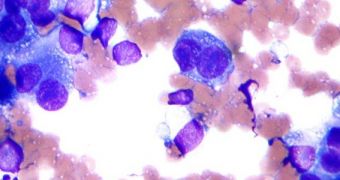According to the conclusions of a new scientific investigation, it would appear that black skin evolved among humans as a mechanism to protect against early death from skin cancer. This hypothesis is not new, but previously researchers thought it impossible due to the fact that this condition is usually lethal only to people who have passed the age of reproduction.
In other words, scientists used to think that only the elderly died of skin cancer early on in our species' history, a fact that did not affect reproduction levels. However, the new study argues that this view is incorrect, highlighting the fact that albino people in areas of Africa battered by ultraviolet radiations die at a very young age.
Skin cancer is almost always triggered by exposure to intense UV radiation, and this was undoubtedly the case in Africa, where the earliest humans evolved. The new paper lends additional credence to a hypothesis arguing that skin cancer was the selective pressure that led to the evolution of black skin.
Details of the new study were published in the latest issue of the journal Proceedings of the Royal Society B. In the paper, researchers argue that the albino people covered by this research lived in the same area where the earliest humans are likely to have evolved too.
Statistically, albino people in Tanzania and Nigeria, as well as in other countries in equatorial Africa, tend to die from UV-induced skin cancer before they reach the age of 30. This correlation is valid in 80 percent of cases, says study leader Mel Greaves, a professor with The Institute of Cancer Research in London, the United Kingdom.
The researcher admits that the evidence presented in this research is indirect, but says that it highlights the type of evolutionary pressure fair-skinned people in Africa were under to develop a natural defense mechanism against skin cancer. The emergence of dark skin represented the correct answer to this peril, e! Science News reports.
Other studies have already confirmed that black or dark skin first developed in the savannas of eastern Africa, between 1.2 to 1.8 million years ago. This is also around the same time when early humans lost their bodily hair, most likely in an attempt to shed heat more efficiently.
“Charles Darwin thought variation in skin colour was of no adaptive value and other investigators have dismissed cancer as a selective force in evolution,” says Greaves, who is also the director of the Center for Evolution and Cancer at the TICR.
“But the clinical data on people with albinism, particularly in Africa, provide a strong argument that lethal cancers may well have played a major role in early human evolution as an important factor in the development of skin rich in dark pigmentation – in eumelanin,” he concludes.

 14 DAY TRIAL //
14 DAY TRIAL //